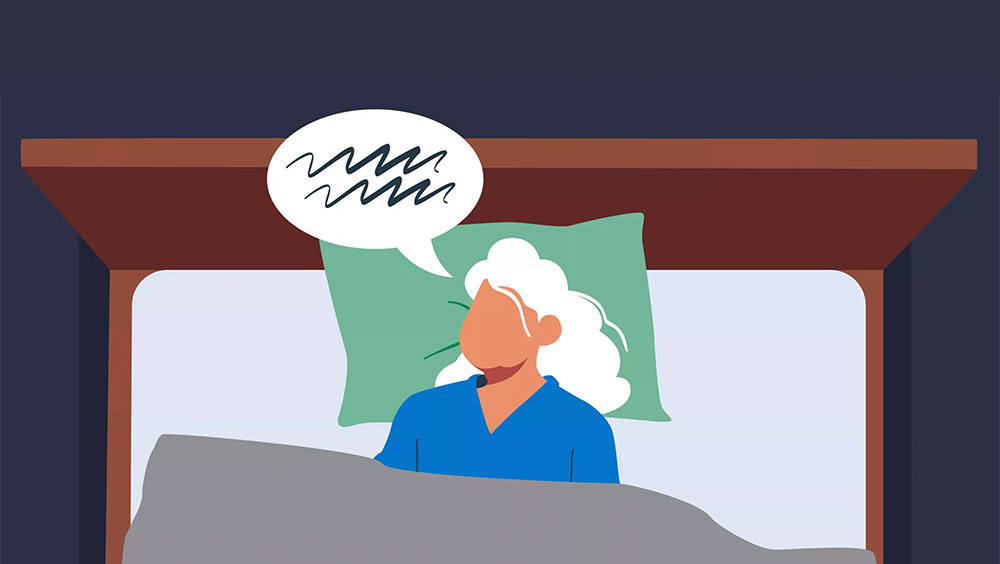Sleep talking, medically known as somniloquy, is a common but disruptive sleep disorder that affects people of all ages. While it’s usually harmless, frequent sleep talking can disrupt your rest and that of your partner or roommate. Fortunately, there are practical strategies you can implement to minimize or eliminate this nightly habit. In this article, we’ll explore how to stop sleep talking by identifying its causes and applying science-backed techniques to promote uninterrupted sleep.
Understand the Causes of Sleep Talking

The first step in learning how to stop sleep talking is to understand what might be causing it. Sleep talking can be triggered by various factors, such as stress, sleep deprivation, fever, certain medications, or mental health disorders like anxiety and depression. By addressing these underlying issues, you can reduce the frequency and severity of sleep talking episodes. Maintaining a sleep diary can help track patterns and potential triggers.
Establish a Consistent Sleep Routine

A regular sleep schedule is crucial in preventing sleep disturbances, including sleep talking. Going to bed and waking up at the same time every day helps regulate your body’s internal clock. When your sleep is synchronized with your circadian rhythm, episodes of somniloquy tend to decrease. Aim for 7–9 hours of quality sleep per night to improve overall sleep health.
Create a Calming Bedtime Environment

Setting the stage for restful sleep is another effective strategy for how to stop sleep talking. Ensure your bedroom is quiet, dark, and cool. Limit screen time at least one hour before bed, and consider using white noise machines or blackout curtains for added comfort. Incorporating soothing bedtime rituals such as reading, meditation, or warm baths can help signal your brain that it’s time to wind down.
Manage Stress and Anxiety

High stress levels are a well-known culprit of sleep disturbances, including sleep talking. Practicing mindfulness, yoga, or breathing exercises can significantly reduce nightly stress. Journaling before bed or talking through your problems with a therapist are also valuable techniques. Learning how to stop sleep talking often involves managing daytime anxiety to enhance nighttime relaxation.
Limit Stimulants Before Bed

Consuming caffeine, alcohol, or heavy meals before bedtime can negatively impact your sleep quality. These substances can cause fragmented sleep or increase the likelihood of night talking. To curb this, avoid stimulants at least 4–6 hours prior to bedtime. Choose light snacks, herbal teas, or other sleep-friendly foods during your wind-down period.
Evaluate Medications With a Healthcare Provider

Certain medications, especially those affecting the nervous system, may contribute to sleep talking. If you suspect a prescription is causing your episodes, consult your healthcare provider. Do not stop medications abruptly, but have a conversation about possible alternatives or adjustments. Knowing how to stop sleep talking sometimes involves professional medical guidance.
Use Sleep Apps or Consult a Sleep Specialist

Technology can assist in tracking and minimizing sleep talking. Sleep apps can monitor disturbances and provide insights into sleep quality. For persistent issues, consider seeing a sleep specialist who can conduct a sleep study and recommend customized treatments. They can help identify disorders like sleep apnea that may be contributing to the problem.
Establish Sleep Talking Boundaries With Partners

If your sleep talking disturbs a partner or roommate, it's important to openly discuss strategies to manage it together. Using earplugs, white noise machines, or sleeping in a separate room occasionally can help reduce tension and improve sleep quality for both individuals. Collaborating on solutions fosters a supportive environment for stopping sleep talking.
While sleep talking might not always be a serious medical concern, it can impact your rest and that of those around you. By implementing lifestyle changes, managing stress, and seeking professional help when needed, you can significantly reduce or even eliminate episodes. Learning how to stop sleep talking is a process that involves understanding the root causes and making consistent efforts to improve sleep hygiene. With time and the right approach, quieter nights are within reach.


